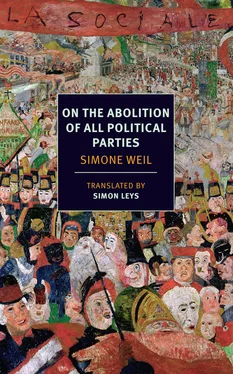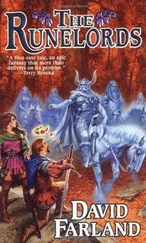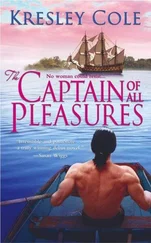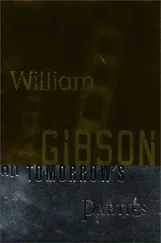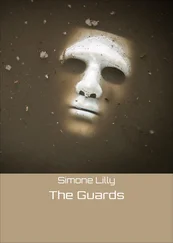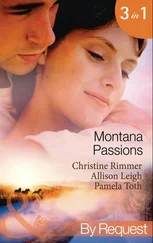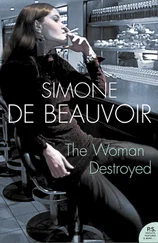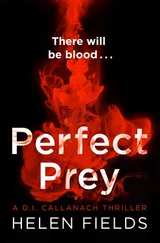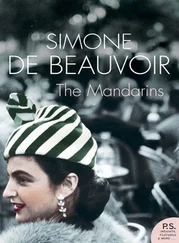In 1960, Milosz settled in the United States, where the University of California, Berkeley, offered him the chair of Slavic languages and literature. His academic activities did not interrupt the pursuit of his own literary work — more than forty volumes of poetry and essays, crowned by various prizes, including eventually, in 1980, the Nobel itself. After the collapse of communism and till his death in 2004, he shared his time between Berkeley and Cracow. After having been away for more than half a century, he must have found his native country more foreign than the foreign lands where he had spent the greater part of his life and where he produced the best of his creative work — itself a fruit of exile.
For Milosz, as for Camus, the discovery of Simone Weil’s writings gave a new orientation to his spiritual life. [8] One finds traces of this revelation all through his essays, his correspondence and even his teaching at the university (he gave a course on Manichaeism, directly inspired by Weil’s views on the subject, and edited in Polish a thick volume of her selected essays).
The religious position of Milosz appears both symmetrical with and opposite to that of Simone Weil. Her remark on the pagans who are naturally Christian, and the Christians who are naturally pagan, could fairly well summarise their respective situations. Simone Weil had a great desire to join the Church, in order to be allowed to partake in the sacraments; she denied herself this blessed privilege: she deliberately did not cross the threshold and remained outside — in solidarity with, and out of compassion for, the wretched condition of the neo-pagans. Milosz, conversely, born and educated within the Church, often wished to leave it; he wished to escape both the Polish Church of his childhood — political and chauvinistic — and the dismal caricature of Protestantism into which he saw that Western post-conciliar Catholicism was hopelessly drifting. [9]
Milosz once defined himself as an ‘ecstatic pessimist’ and it is perhaps in this that he most resembles Simone Weil. In front of the mystery of evil, there is not much room in their faith for a Providence (that would comfort suffering), nor for a Communion of the Saints (that would endow suffering with meaning).
Is a consoling religion a debased form of religion? ‘Love is not a consolation, it is a light’ — this sentence of Simone Weil is admirable; but why should light not be consoling? At least, this is how the humble souls perceive it, when they piously light candles in front of the holy images of the Virgin Mary, or of some saints. Yet, of course, we can hardly imagine our philosopher — with her implacable genius — ever indulging in such practices (which, however, Pascal himself did not despise). [10]
Simon Leys
1. Milosz, Milosz’s ABCs . Farrar, Straus & Giroux, New York, 2001, ‘Anus mundi,’ pp. 39–40.
2. Milosz, The Captive Mind . Secker & Warburg, London, 1953, p. 28.
3. ibid., pp. xii — xiii.
4. ibid., p. 29.
5. ibid. p. 29.
6. ‘Geniuses have the shortest biographies because their inner lives are led out of sight and earshot; and in the end their cousins can tell you nothing about them.’
7. Milosz mentions this in a letter to his American friend the Trappist monk and writer Thomas Merton. See Striving towards Being: the Letters of Thomas Merton and Czeslaw Milosz . Farrar, Straus & Giroux, New York, 1997, p. 68.
8. The religious problem occupied a significant place in the friendship between Camus and Milosz. Camus was an atheist who doubted his own atheism, and Milosz was a Christian who doubted his own Christianity. Doubt was a common concern of both; the mystical certainty of Simone Weil was for them a guiding light in the mist. (Of course, I am grossly simplifying here a very complex issue.)
On discovering Simone Weil at a time of harsh isolation and deep disarray — when writing The Captive Mind — see his first letter to Thomas Merton (op. cit., p. 8): ‘I went to much despair. I was helped in my despair by things and some human beings — among others, by Simone Weil, through her writings. I felt afterwards she could help not only me and succeeded in publishing her Chosen Writings in my Polish translation — a book of 350 pages…’
9. Partaking in the sacraments was a problem for him, but he took his children to Sunday Mass — thus repeating in a certain way the dilemma of Camus: ‘I remember one conversation with Camus. He asked me if, in my opinion, it was appropriate that he, an atheist, should send his children to first communion. This conversation took place shortly after my visit with Karl Jaspers in Basel, whom I had asked about raising my children as Catholics. Jaspers had responded that as a Protestant he was not favourably inclined towards Catholicism, but that children must be raised in their own faith, if only to give them access to the biblical tradition, and that later they could make their own choice. I responded to Camus’s question in more or less the same vein.’ Milosz’s ABCs , pp. 77–78.
10. Pascal, Pensées. Kaplan edition: pensée 115, Lafuma ed.: pensée 418.
I wish to express my gratitude to Chris Feik: once again, my work greatly benefited from his editorial skills.
S.L.
